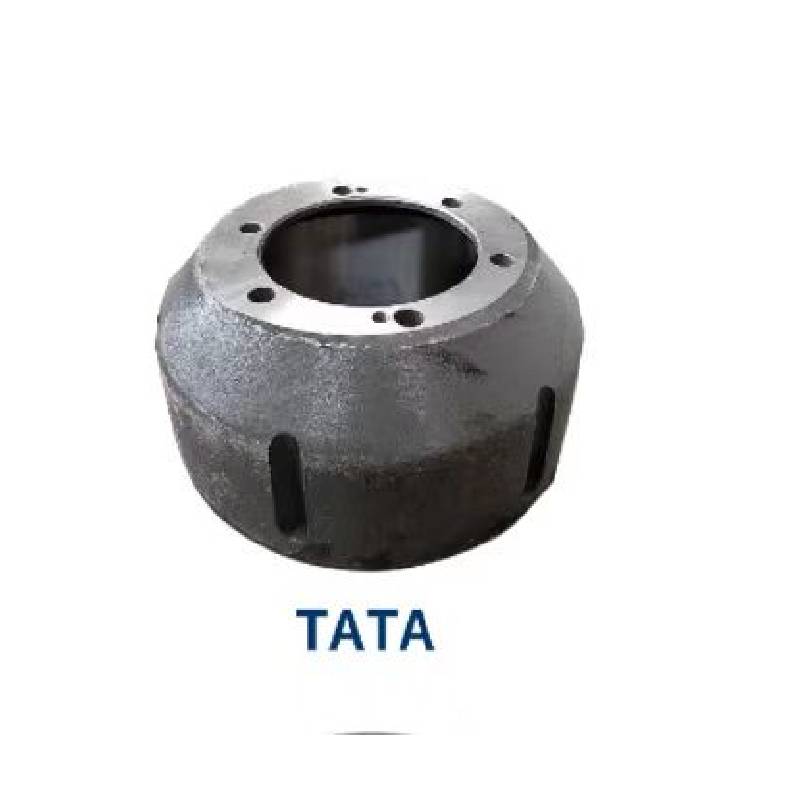Okt . 13, 2024 18:49 Back to list
How to Identify the Sounds of a Warped Brake Drum in Your Vehicle
Understanding the Sounds of a Warped Brake Drum
When it comes to vehicle maintenance, paying attention to the sounds your car makes can be just as critical as observing its physical condition. One of the more troubling issues that drivers can encounter is the problem of a warped brake drum. Understanding the sounds associated with this issue not only helps in identifying the problem early but also ensures you’re more informed during a visit to your mechanic. So, let's explore what a warped brake drum sounds like and why it matters.
What is a Brake Drum?
First, it’s essential to understand what a brake drum is and its function in a vehicle. Typically found in older vehicles or lighter trucks, a brake drum is a component of the drum brake system that houses the brake shoes. When you press the brake pedal, hydraulic pressure forces the brake shoes against the drum's inner surface, creating friction to slow down or stop the vehicle. Any distortion or warping of the drum can lead to uneven wear on the brake shoes and impaired braking performance.
How Does a Warped Brake Drum Sound?
When a brake drum is warped, it can produce several distinct sounds that indicate an underlying issue. These sounds can be both a warning sign and an irritating noise during your drives. Here are some common auditory clues that may signal a warped brake drum
1. Grinding Noise One of the most prominent and alarming sounds associated with a warped brake drum is a persistent grinding noise. This occurs when the brake shoes wear unevenly against the warped surface of the drum, creating a metallic sound as they make contact. If you hear a grinding noise that intensifies with braking, it's a strong indicator that you should inspect the brake system immediately.
2. Thumping or Pounding Sound Another telltale sign of a warped brake drum is a rhythmic thumping or pounding sound when you press the brakes. This sound can feel like a pulse through the brake pedal itself, and it often indicates that the brake drum is not making even contact with the shoes. This can sometimes be described as a wobble that can be felt more than heard, but is still noticeable enough to be concerning.
what does a warped brake drum sound like

3. Squeaking or Squealing While squeaking can be a normal sound when brakes are in need of service, if you notice a high-pitched squealing sound while braking, it could indicate uneven wear due to warping. This sound may become more pronounced when the brakes are wet or when the vehicle has been in use for an extended period.
4. Vibration Though not a sound in the traditional sense, the feeling of vibration when pressing the brake pedal can indicate warped brake drums. If the car shakes or vibrates noticeably when you apply the brakes, this could be a strong indicator that the drums need to be inspected or replaced.
What Causes a Brake Drum to Warp?
Warpage of a brake drum can result from various factors. Most commonly, extreme heat generated during prolonged braking can cause the metal of the drum to deform. Over time, excessive usage, particularly in hilly or mountainous areas, can exacerbate this issue. Additionally, improper installation or insufficient maintenance can lead to uneven wear and eventual warping.
Why Immediate Attention is Necessary
Ignoring the sounds associated with a warped brake drum can have grave consequences—not only can it lead to reduced braking efficiency, but it can also compromise your overall safety on the road. Prolonged use of defective brakes can lead to complete brake failure, resulting in disastrous accidents. It’s advisable to seek professional assistance as soon as you notice unusual sounds or sensations when braking.
Conclusion
In conclusion, understanding the sounds emitted by a warped brake drum can be invaluable for vehicle owners. Whether it is a grinding noise, a thumping sensation, or a high-pitched squeal, these are all signs that should not be taken lightly. If you encounter any of these noises, consult a qualified mechanic to get to the root of the problem and ensure your braking system functions safely and effectively. Remember, preventative maintenance and timely repairs can make all the difference in keeping both you and your passengers safe on the road.
-
High-Quality Brake Drum MAZ – Durable Drum Brake Drum & Brake Drum and Brake Shoe Solutions
NewsJul.05,2025
-
High-Quality Brake Drum Iveco - Durable Drum Brake Drum & Brake Shoe Solutions
NewsJul.05,2025
-
High-Quality Brake Drum MAZ – Durable Drum Brake Drum & Brake Drum and Brake Shoe Solutions
NewsJul.04,2025
-
Brake Drum Man - High-Quality Drum Brake Drums & Brake Shoes for Reliable Performance
NewsJun.24,2025
-
High-Quality Brake Drum Kamaz – Durable Drum Brake Drum & Brake Shoe Replacement
NewsJun.10,2025
-
High-Quality Brake Drum Liza for Drum Brake Systems - Superior Durability and Performance
NewsJun.10,2025
